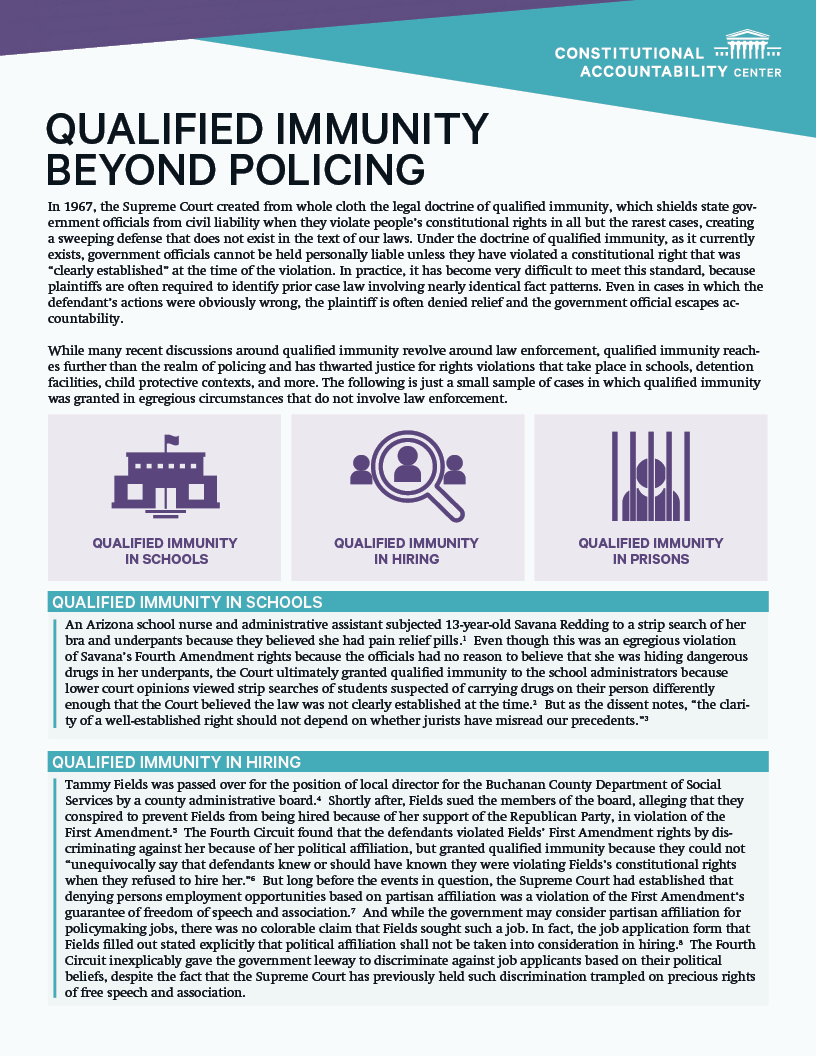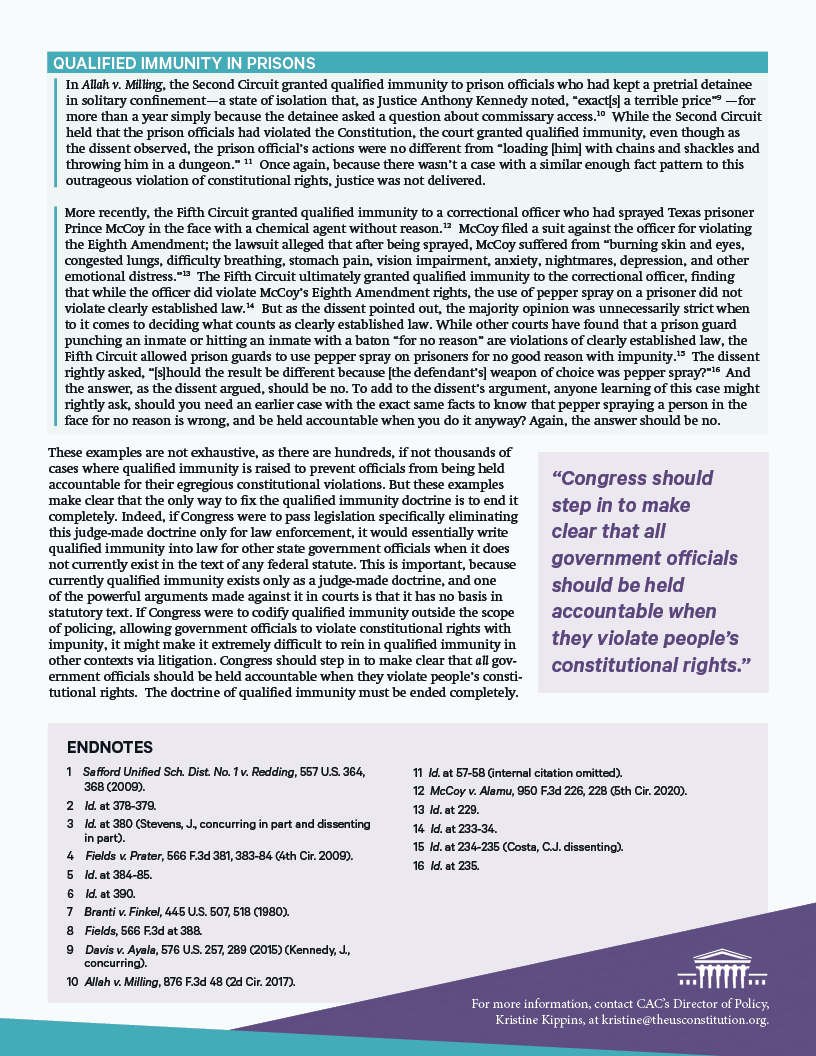Qualified Immunity | Beyond Policing
Summary
In 1967, the Supreme Court created from whole cloth the legal doctrine of qualified immunity, which shields government officials from civil liability when they violate people’s constitutional rights in all but the rarest cases. Under the doctrine of qualified immunity, as it currently exists, government officials cannot be held personally liable unless they have violated a constitutional right that was “clearly established” at the time of the violation. In practice, it has become very difficult to meet this standard, because plaintiffs are often required to identify prior case law involving nearly identical fact patterns. Even in cases in which the defendant’s actions were obviously wrong, the plaintiff is often denied relief and the government official escapes accountability.
While many recent discussions around qualified immunity revolve around law enforcement, qualified immunity reaches further than the realm of policing and has thwarted justice for rights violations that take place in schools, detention facilities, child protective contexts, and more. The following is just a small sample of cases in which qualified immunity was granted in egregious circumstances that do not involve law enforcement.


